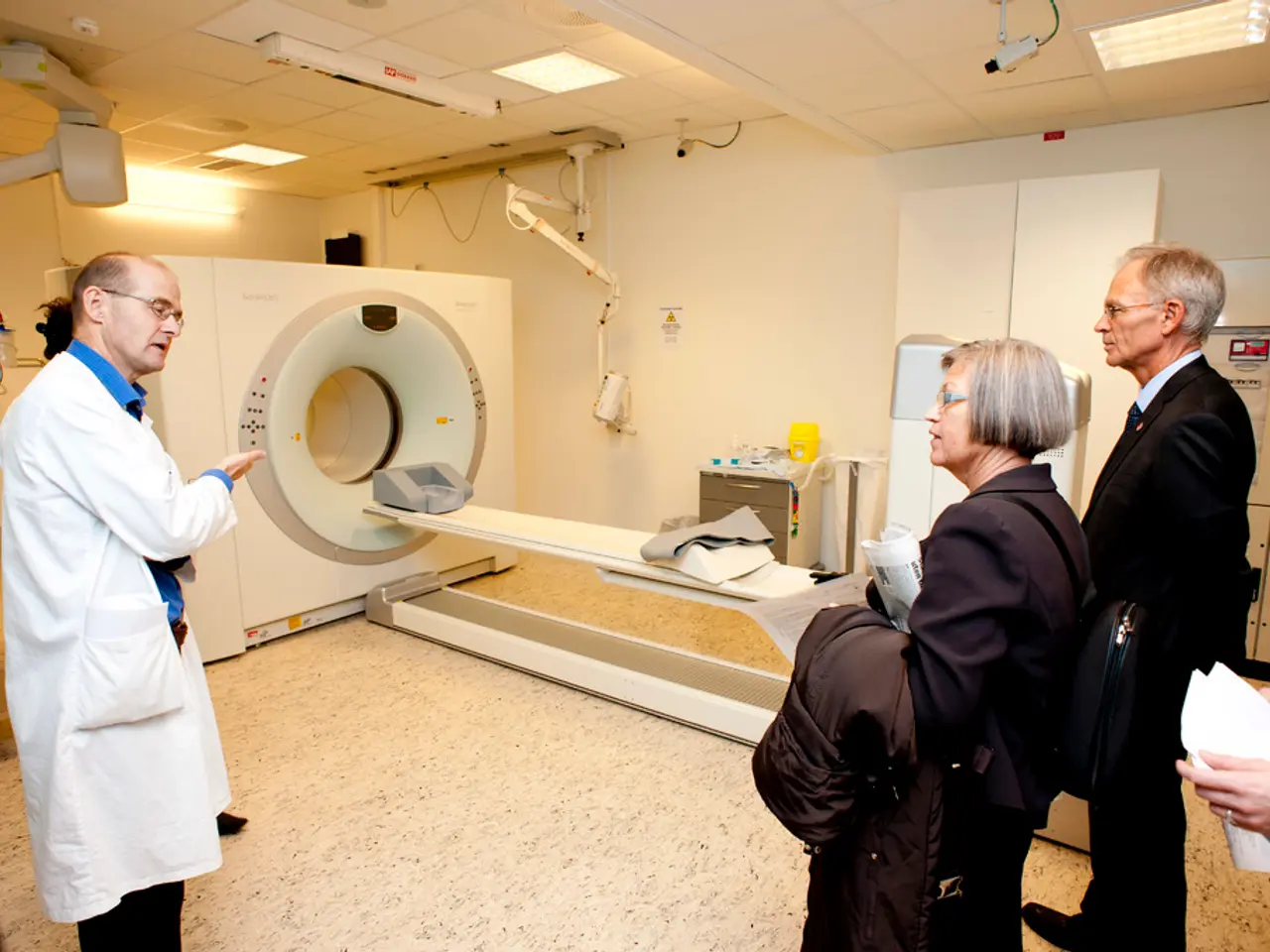Effect of Expert Care in Handling Lichen Sclerosus
In the realm of skin disorders, Lichen Sclerosus (LS) stands out as a condition that primarily affects the genital and anal areas, causing discomfort, pain, and potential isolation. However, advancements in medical treatments and holistic approaches have made it possible to effectively manage this condition.
Effective management of LS involves a combination of medical therapies and supportive natural remedies, tailored to individual patient needs and disease severity.
### Medical Treatments
Topical corticosteroids, high-potency creams that act as potent anti-inflammatory agents, remain the first-line treatment for most LS cases. For females unresponsive to topical corticosteroids like clobetasol, topical calcineurin inhibitors such as tacrolimus ointment have shown efficacy in improving symptoms and signs of vulvar LS.
Surgical and procedural options also play a role in managing LS. For penile LS, circumcision has been proven effective, while Platelet-rich plasma (PRP) therapy, a regenerative option, is a promising treatment particularly for penile LS, where PRP injections stimulate tissue repair through growth factors that enhance blood vessel and nerve regeneration. For vulvar LS, newer laser therapies such as Aerolase vulvar laser treatments improve tissue hydration, texture, and reduce irritation non-hormonally.
Emerging therapies like JAK inhibitors and photodynamic therapy (PDT) show promise for refractory vulvar LS, but require more extensive studies before routine use.
### Holistic and Complementary Approaches
In addition to medical treatments, natural topical remedies such as zinc oxide ointments and essential oils like frankincense and tea tree diluted in coconut oil have anecdotal support for calming symptoms due to their antifungal and antibacterial properties. Addressing microbiome health via probiotics, dietary adjustments, and managing Candida overgrowth may complement treatment efforts.
Lifestyle and self-care are essential components of holistic care. Avoidance of irritants, gentle skin care routines, and stress management are key to symptom control and quality of life.
Awareness and improved care for LS can pave the way for future generations to access better support and specialized care more readily. Initiatives are underway to enhance information and resources for both patients and healthcare providers.
Engaging with others who understand LS can provide emotional validation. Support groups provide a space for individuals to share experiences and coping strategies, reducing feelings of isolation. Building a supportive network of friends, family, or fellow patients is empowering when managing LS.
Holistic approaches are increasingly recognized as valuable in managing health issues like LS. Mindfulness and stress-reduction techniques can help alleviate symptoms of LS. Nutrition plays a significant role in skin health and can help manage symptoms of LS.
For more information, check out this external resource: Lichen Sclerosus Specialist (). The more LS is discussed, the more awareness is generated. Advocacy and education are vital in managing LS and pushing for greater recognition within the medical community. Attending support group gatherings can help individuals feel less isolated in their health journey.
- In the management of Lichen Sclerosus (LS), smart AI systems could be employed to devise personalized solutions for each patient, taking into account individual patient needs and disease severity.
- Automation in skin-care systems could simplify daily routines for people with LS, ensuring gentle skin care and avoiding irritants, promoting symptom control and quality of life.
- Advancements in mental-health AI could provide emotional support to those affected by LS, offering personalized mental-health solutions and coping strategies to reduce feelings of isolation.
- Smart glasses equipped with AI could be designed for women's-health consultations, providing real-time medical data and education on LS treatments, improving accessibility and understanding for patients and healthcare providers alike.
- AI-powered sexual-health systems could offer discrete, confidential support and education on LS for both men and women, empowering individuals to take control of their health and well-being.
- In the future, AI solutions for mens-health could extend to skin-care and wellness, offering AI-powered recommendations for specific products and routines targeted at addressing symptoms and improving overall health in those affected by LS.




